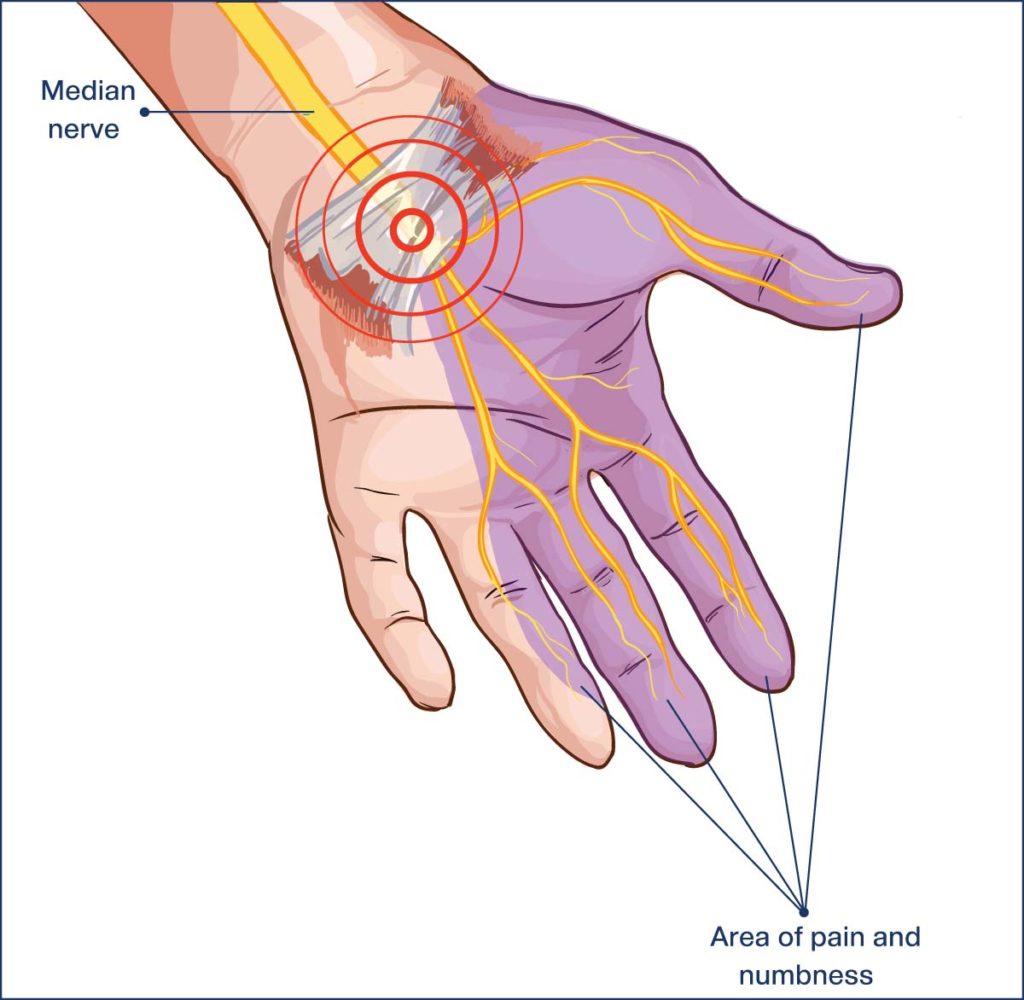
Carpal Tunnel Syndrome
Typical Symptoms
Carpal Tunnel Syndrome (CTS) usually causes tingling, numbness and weakness in the hand, particularly in the thumb, index, middle and part of the ring finger. Symptoms can be progressive and if there is muscle weakness, it can lead to considerable disability.

What causes it?
CTS symptoms are due to compression of the median nerve as it enters the hand and can be from either prolonged pressure on the wrist or some manual activities. There can be swelling of the carpal ligament or nerve itself.
How can I help myself?
In the first instance, you can look at activities that might be causing the symptoms, such as compression on the wrists and manual activities. By modifying these, you can help limit the symptoms.
In situations where things are getting worse, using splints at night can be helpful or some people try supplements such as B-vitamin complexes to help nerve health. With persistent pain, you can consider using analgesia.
When to seek help?
If your symptoms are persisting despite the splint, of if you are noticing a progression, with numbness, weakness and difficulty with fine movements. In fact, it is probably a good idea to be seen before these symptoms occur!
What are the treatment options?
Once your clinician has assessed you with a thorough history and clinical examination, they may request a nerve conduction test or ultrasound examination of the wrist to see if there are any functional or physical changes to the nerve.
In some situations, a cortisone injection may be appropriate, or if symptoms persist or worsen, then a surgical option can be sought to release the carpal tunnel.








